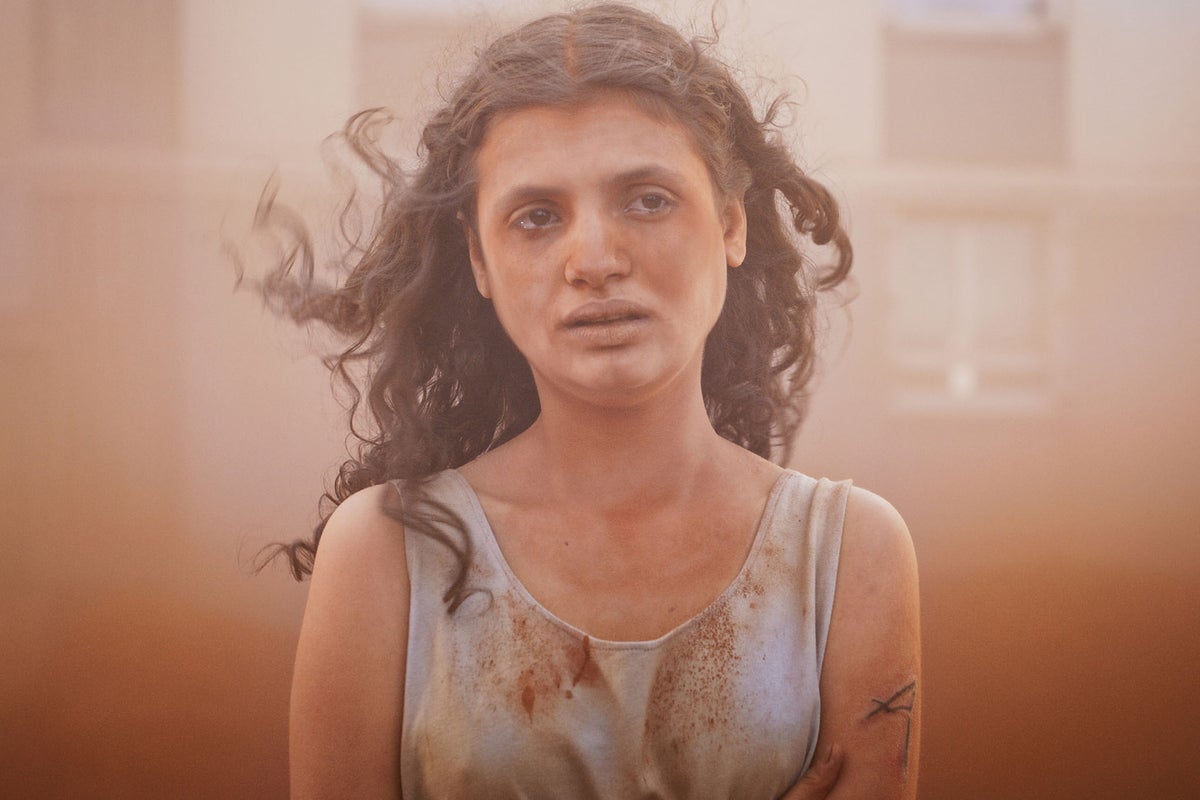For a time, Julia Ducournau was known as the rising French queen of body horror. Her debut was the cannibalism-as-sexual-appetite allegory Raw, while her follow-up Titane, was a meditation on serial killing and family loneliness in which a woman has sex with a car. So, when Ducournau returned to the Cannes competition line-up this year with Alpha, four years after winning the Palme d’Or for Titane, critics were primed for yet another gory genre fable. Instead, they witnessed an emotional monument to the experience of loving someone in a dying, socially outcast body. Tahar Rahim, one of the film’s stars, sensed a difference on the page. “I felt this emotional aspect that was new to her cinema,” he tells me.
Describing Alpha is a slippery task – attending to the storylines is less important than surrendering to its mysterious rhythms and primal emotions. Set across two timelines within the bosom of a French-Berber family, it depicts the rupturing relationship between a mother (Golshifteh Farahani) and her adolescent daughter Alpha (Mélissa Boros) amid the reappearance of Uncle Amin (Rahim), an addict with a virus that is killing him. The unnamed virus is coded – by the Eighties and Nineties settings of the film – as Aids, though the sweep is open enough for viewers to read it as they will. Alpha spun me back into the feeling of caring for my mum as she was dying of brain cancer, and however frightening the deterioration of her body was, our love was still more powerful.
This is a film about being a carer that does something I have never seen on screen before, which is to depict sick people through the eyes of those who still see their majesty. “[Julia] was honouring people that many didn’t want to look at face-to-face,” says Rahim, talking about one major departure from realism. In Alpha, as the virus spreads, a patient’s skin slowly turns to marble. When death comes, their eyes marble over and a puff of chalky dust is released as their last breath.
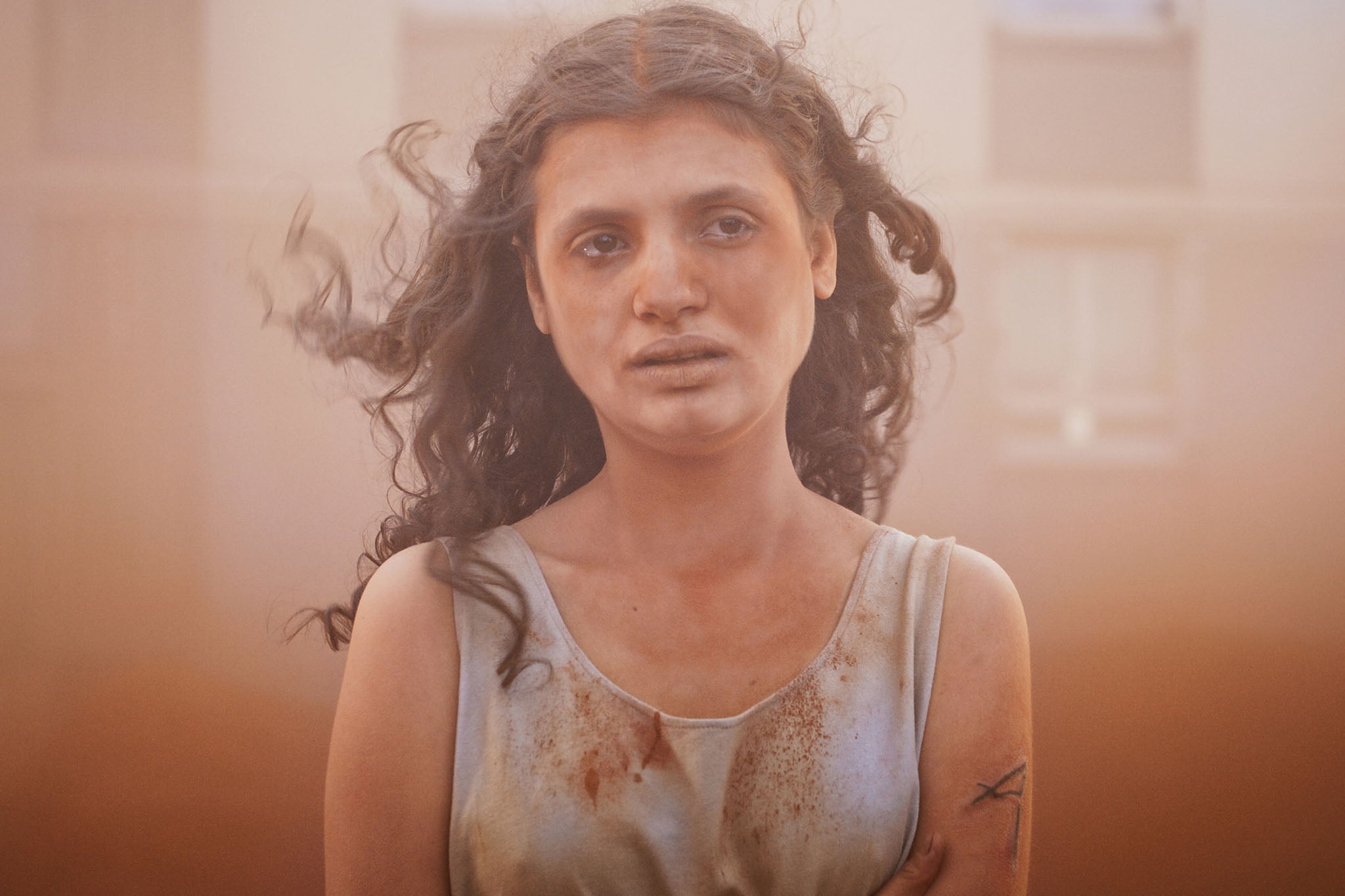
“She was telling all these people we’ve lost, or who are connected to somebody that died from Aids and other diseases, ‘We don’t forget that we saw them,’” Rahim continues. “In turning them into marble, which is a very noble material used to sculpt kings and religious figures, she’s saying, ‘In my movie, they’re going to stay with us for eternity’.”
The emotional frequency of the film stems from a deeper place than even this one stirring aesthetic concept; it is in the DNA of the production. At the welcome drinks in September 2024 ahead of a two-month shoot in Normandy, Ducournau spoke to the cast and crew. “I told them, ‘At our age, we’ve all been through traumas, it’s useless denying that. And I really hope that this shoot will help you – through the characters, through the scenes that we’re making together – to catharsise this hurt.’”
Ducournau says it was the most emotional shoot she has ever been on, and people were crying in between takes. To her, a major theme is regret. “We were all brought in because of our personal want,” she says. Front and centre are the formidable Farahani and Rahim, while Boros does watchful work as the human sponge to their adult trauma. This burden of knowledge equips her to recognise a twin soul in Finnegan Oldfield’s closeted English teacher. He is gagged by a climate of bigotry that compels him to internalise the agony of grief.
“When you ask so much of your actors and actresses, emotionally and, in Tahar’s case, physically, you have to be fully open to them,” says Ducournau, explaining how she laid herself bare throughout production. “They have to understand all your intentions, all your hurt and where you come from with this project. They all gave me a lot, and I gave them my 100 as well. It was an amazing feeling of empathy.”
Rahim trusted Ducournau from the first day of the shoot and surrendered to her to the point that he sometimes lost touch with reality. The César-winning actor is – first and foremost – a lover of cinema as an art form, and came to fame in 2010 as the lead character in Jacques Audiard’s A Prophet. He has been waiting a long time for a role that would allow him to push his limits. “Everything was in the bag for me to explore something – finally,” he says.
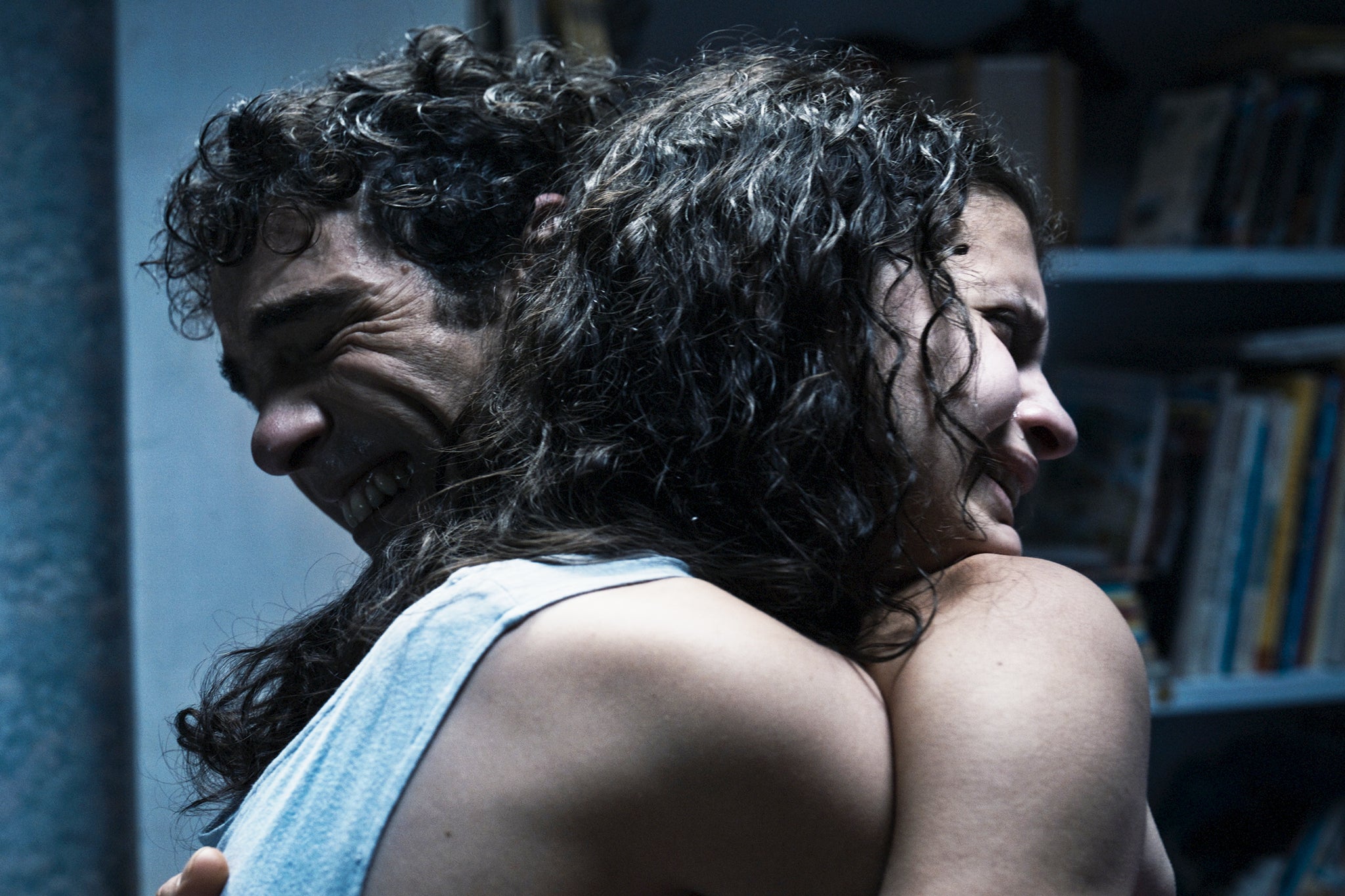
He lost 20 kilos to play Amin, but that was only the start. Prep went beyond anything Ducournau asked. Rahim spent time volunteering for an association named Gaia that helps marginalised people, including those struggling with addiction. “I was allowed to film them in their most vulnerable moments. I talked with them, and I spent time with them. So I picked a lot of things from everybody to create a puzzle that would be my character. The idea was, ‘What would Tahar be if he had lived through Amin’s life?’, because I didn’t want to create something. I wanted to live something as close as possible to what they were going through.”

Watch Apple TV+ free for 7 day
New subscribers only. £9.99/mo. after free trial. Plan auto-renews until cancelled.
Try for free
ADVERTISEMENT. If you sign up to this service we will earn commission. This revenue helps to fund journalism across The Independent.

Watch Apple TV+ free for 7 day
New subscribers only. £9.99/mo. after free trial. Plan auto-renews until cancelled.
Try for free
ADVERTISEMENT. If you sign up to this service we will earn commission. This revenue helps to fund journalism across The Independent.
The result is a glimpse of a man with one foot in life and one foot in death. He is losing control of his body. He has jitters and convulsions, he passes out and has terrors. Right beside him, refusing to show fear, is his sister. Ducournau wrote the part of Mother – a doctor – specifically for Farahani. Often cast in roles that emphasise her feminine sweetness, such as Jim Jarmusch’s Paterson, here the French-Iranian actor is a shattering force of nature. In a medical scene with Amin, something goes wrong. He cries out. Farahani’s eyes register momentary panic before she sublimates her terrors to become a blanket of reassurance. “She is someone who was born with an innate mission of being the mother of everybody,” says Ducournau, “to help everybody in need of care, to not be afraid of any other human being, and to be able to stick with them. She’s someone who is meant for that. And it leads to some extremes where she actually can’t let go anymore.”
Farahani has been exiled from Iran since 2008 and, following Mahsa Amini’s death in police custody, she vocally supported the 2022 Woman, Life, Freedom protests. Ducournau describes her as “a warrior who has been through a lot – I see the sweetness but she’s also a bulldozer when needed”.
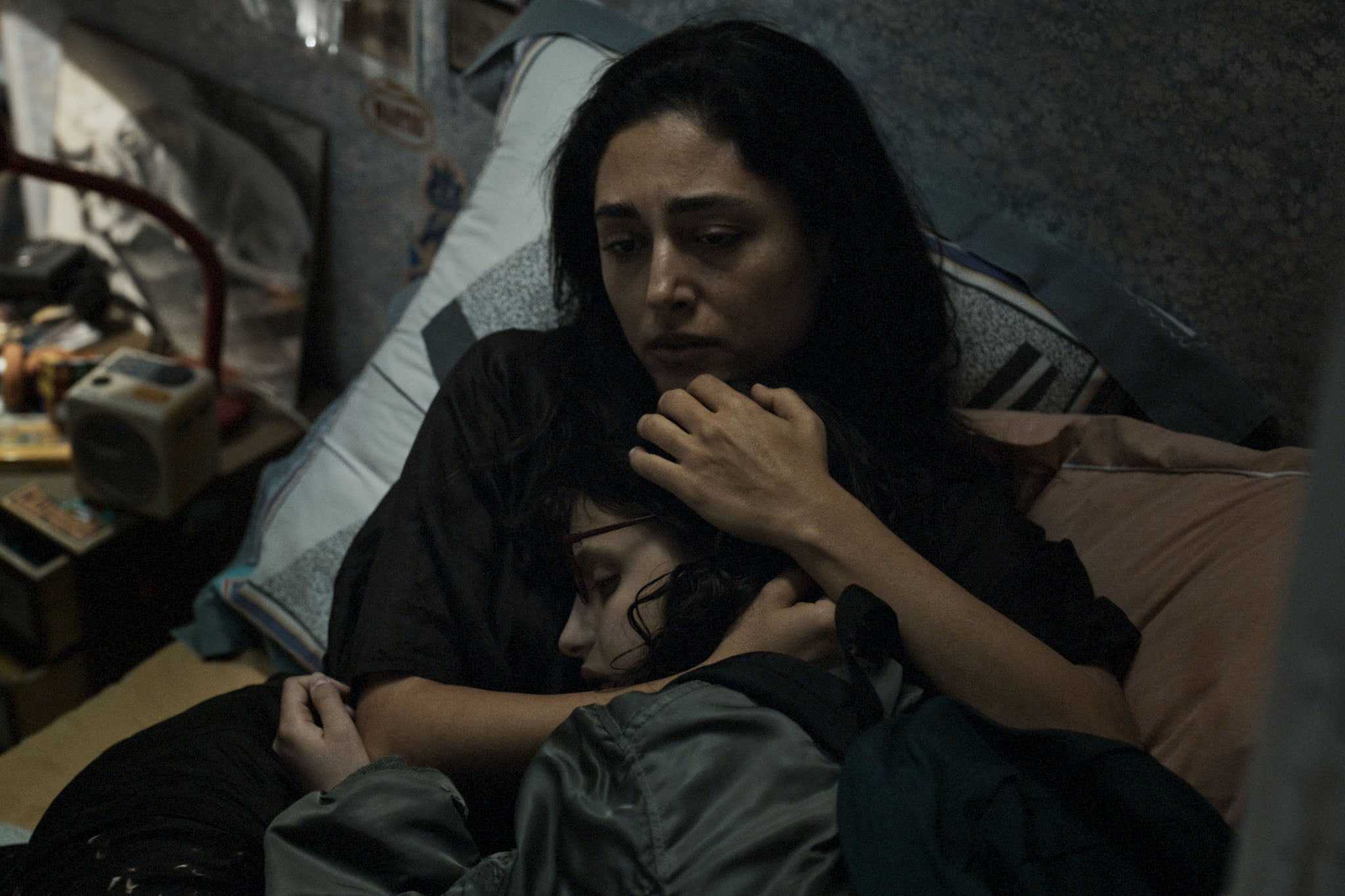
For all of this, Alpha was met with scathing dismissals from popular publications on the heels of its Cannes premiere. Peter Bradshaw’s one-star review for The Guardian was headlined “Julia Ducournau’s disjointed body horror is an absolute gamma.” In his D+ review for IndieWire, David Ehrlich complained about its “incoherent timeline”. Geoffrey MacNab, of this very parish, wrote “the movie is undermined by its own dense and impenetrable storytelling style”.
It’s misguided, though, to reject a film based on conventional metrics when it is clearly a personal vision. Timeline fluency is not the intention as much as it is Ducournau immersing us in her characters’ experience of reality. As she freely concedes, “my cinema is incredibly subjective in the way I use the camera, in the way I use sound design – you are constantly inside my characters’ perceptions.” In fact, this is how it feels to be alive. We’re usually in more than one place at once as memories, reveries, and fixations bleed into the present moment, colouring it to the point that phantoms might as well be real.
“I could not do a classic, linear, three-act film when we’re talking about people who are still living in trauma and who, like Alpha, are the recipient of that trauma,” says Ducournau. “The timeline of trauma is confusing. It is constantly poked by the resurgences of the past, in terms of visions, hallucinations or panic attacks. Reliving a scene all of a sudden, and feeling it very strongly when it was 10 or 20 years ago – and, at the same time, being engulfed into this crazy apprehension of the future, because you’re afraid that things are going to happen again.”
I felt this film in my bones on my first viewing. On my second viewing, even more so. In a scene where Alpha thrashes in bed and the ceiling closes in on her, I felt the crushing sensation of the world growing smaller as my mother left it. This was not like remembering, this was closer to virtual reality. I was so undone that afterwards I had a theory of why critics did not want to let the film in. This kind of emotional surrender makes you feel so vulnerable.
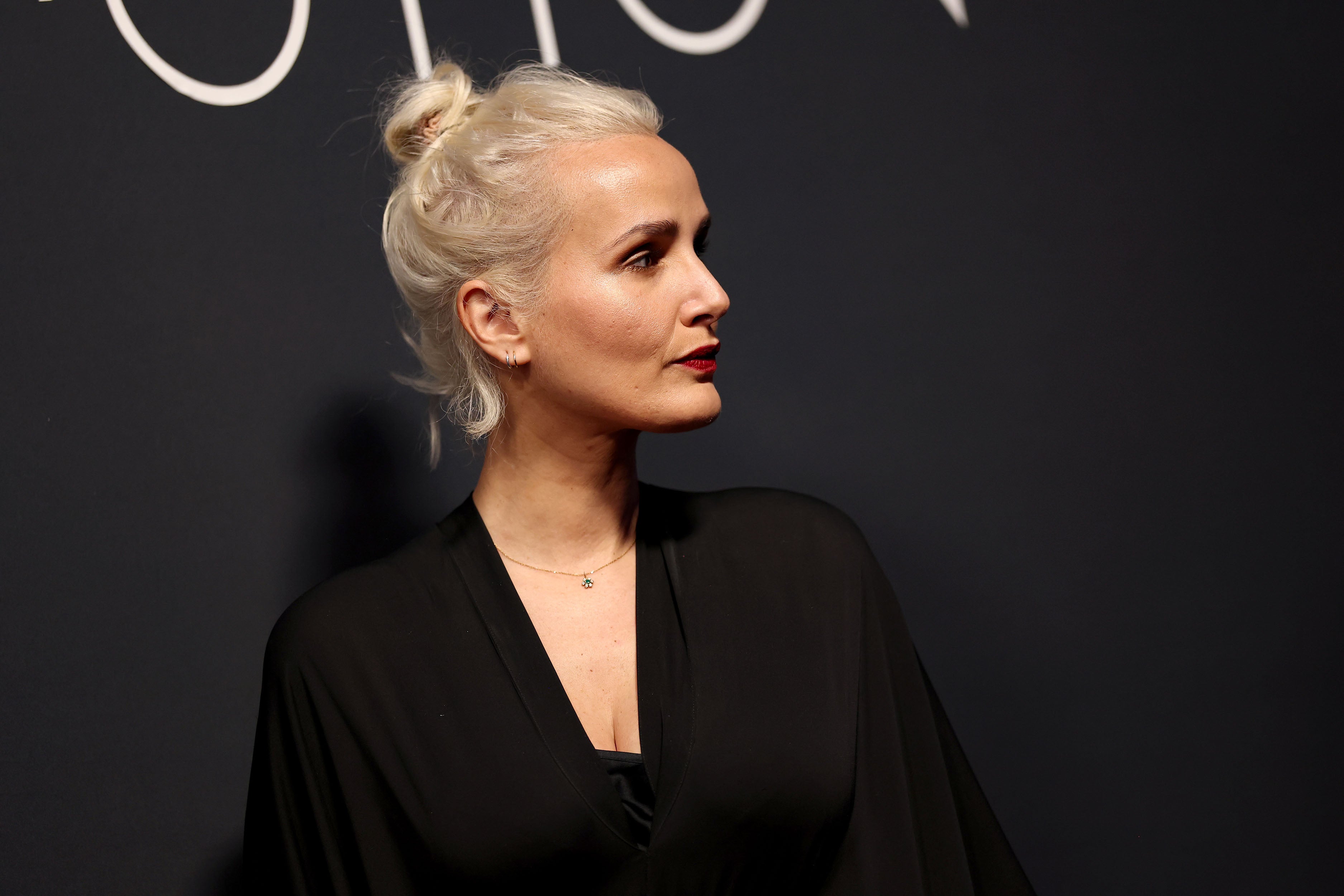
Yet vulnerability is a prerequisite for meaningful relationships with art and with humans. As Rahim points out, you can be in the middle of a crowd, but if you’re closed off, “then you’re alone. You don’t get connected to anyone and it’s sad, finally, to not embrace your emotions and listen to others’ emotions. That’s what growing up is somehow. You’ve got to free yourself from so many things, and I think it starts with listening to your emotions in your body.”
For Ducournau, delving ever deeper and darker is the only way to avoid stagnation. “If you deny a trauma or repress an emotion, it’s going to trickle down through time and through other people after you.” She believes this socially, as well as personally, and points to the fact that despite the coronavirus pandemic, the world has snapped back into business-as-usual – “like nothing happened, except that everything happened. We all went through an abnormal situation that led a lot of people into depression.”
Traumatic experiences are not, by their nature, something we process in the moment that they erupt. It is the decision to feel them again later, and from a place of safety, that enables some semblance of healing. This is the story of Alpha as well as the story of the making of Alpha. As Ducournau puts it, “the emotional fabric that we needed on the shoot made it a safe place to be yourself”.
The confrontational power of this collective effort and the visceral humanity it surfaces is distilled in an early school scene. Alpha’s blood from her unhealed tattoo drips onto a projector, causing classmates to react with disgust. To this, her English teacher has the perfect response: “We’re not made of fairy dust.”
‘Alpha’ is in cinemas from 14 November


